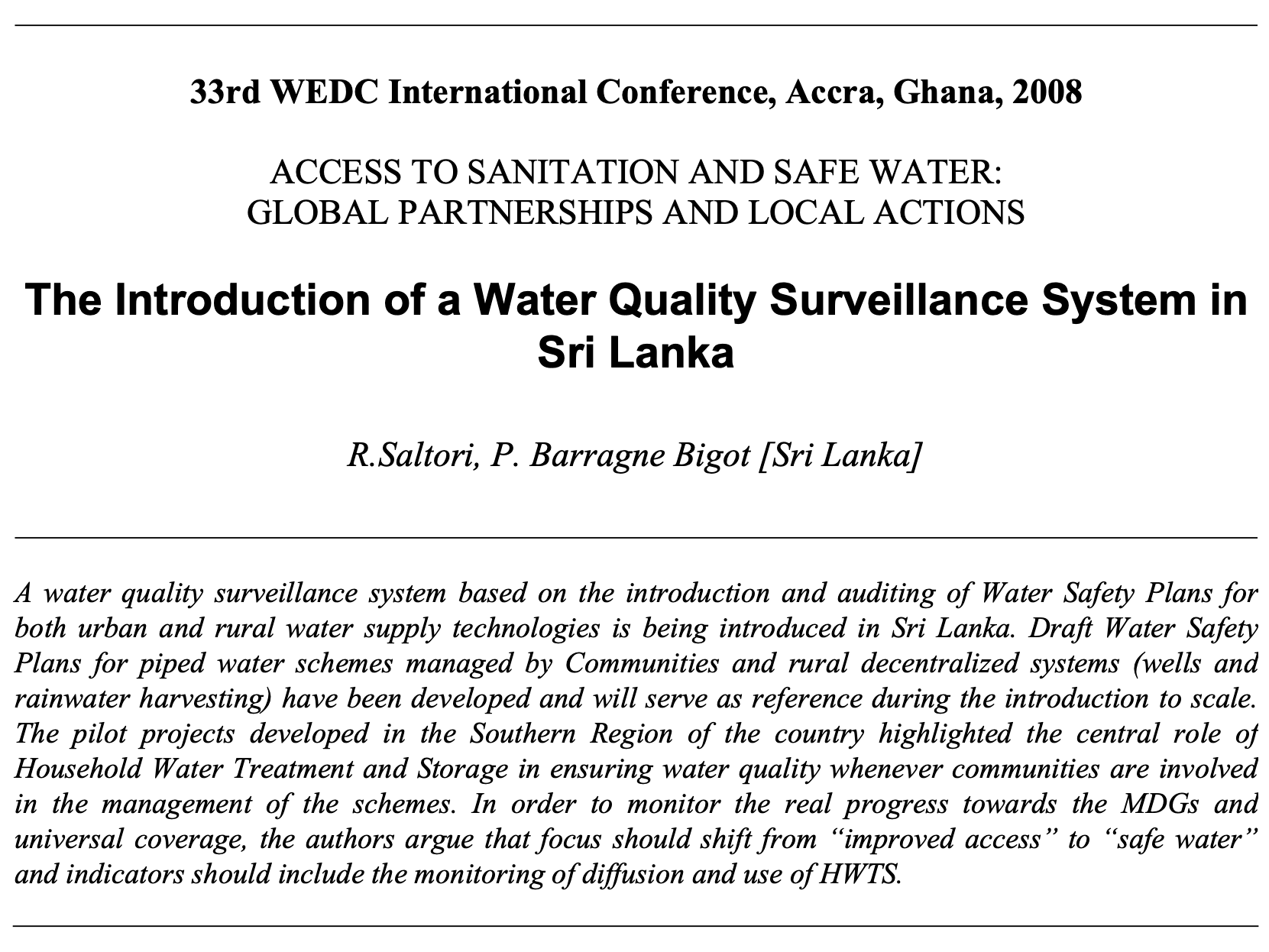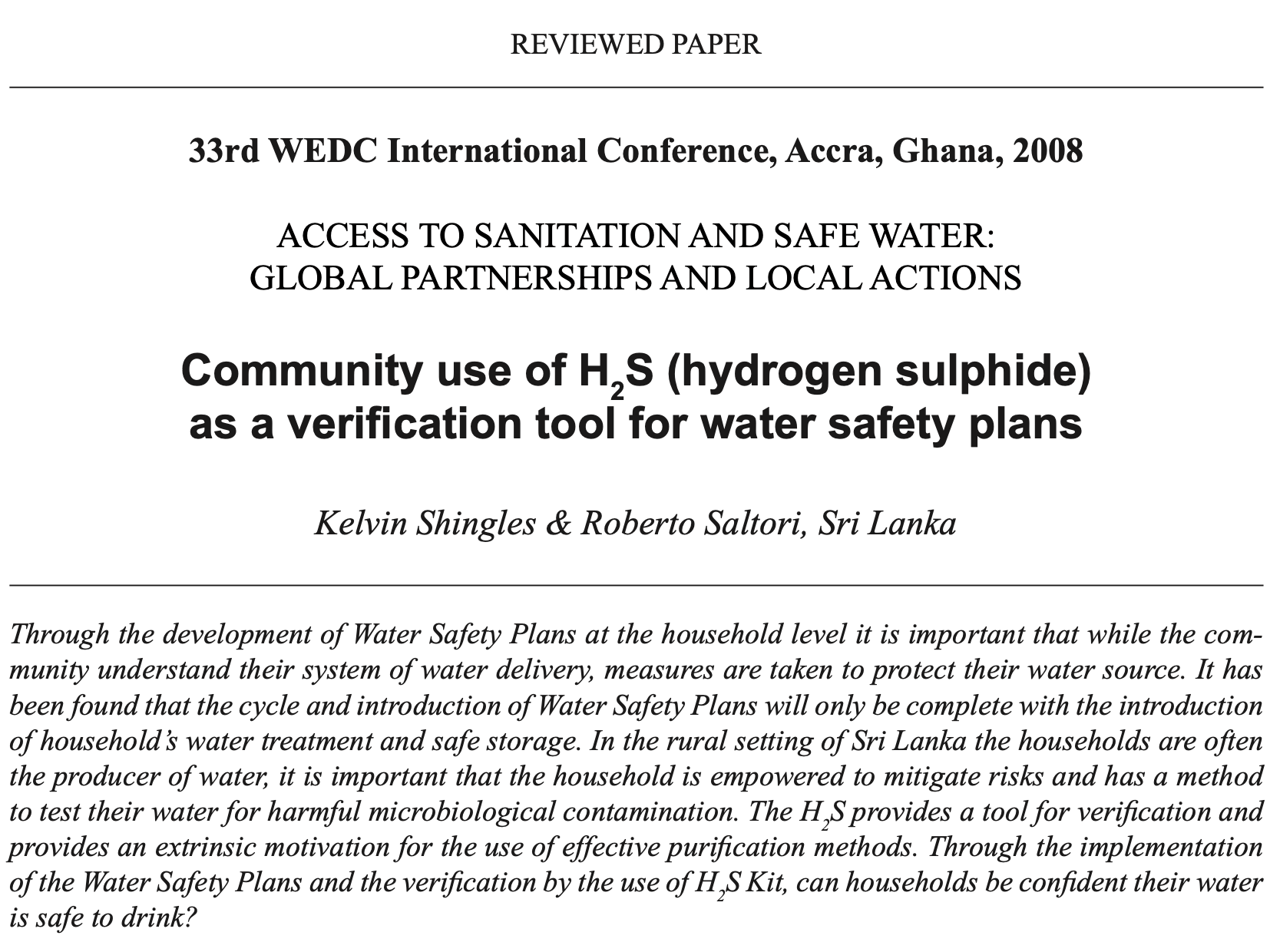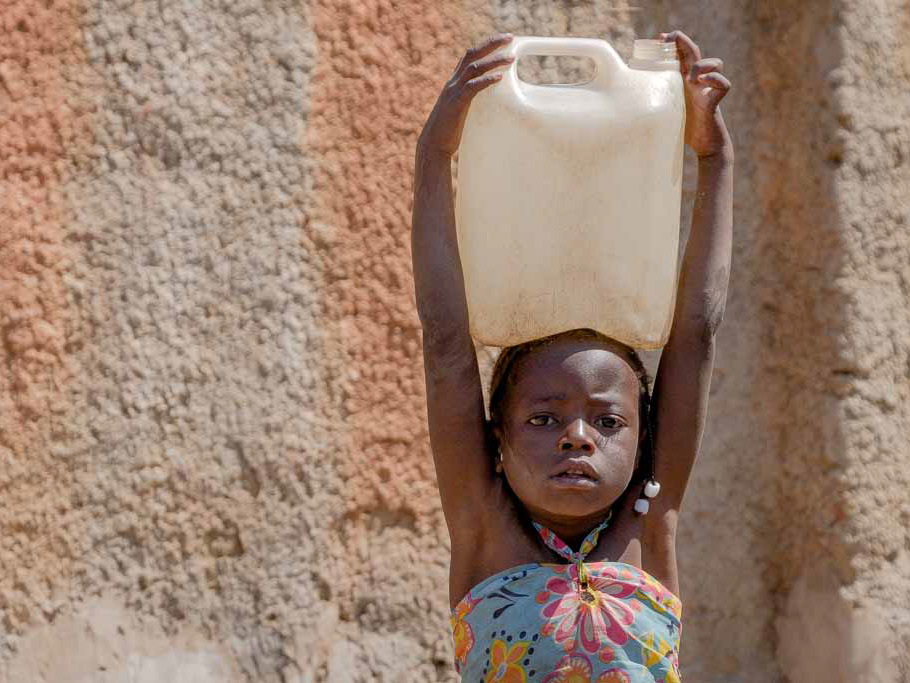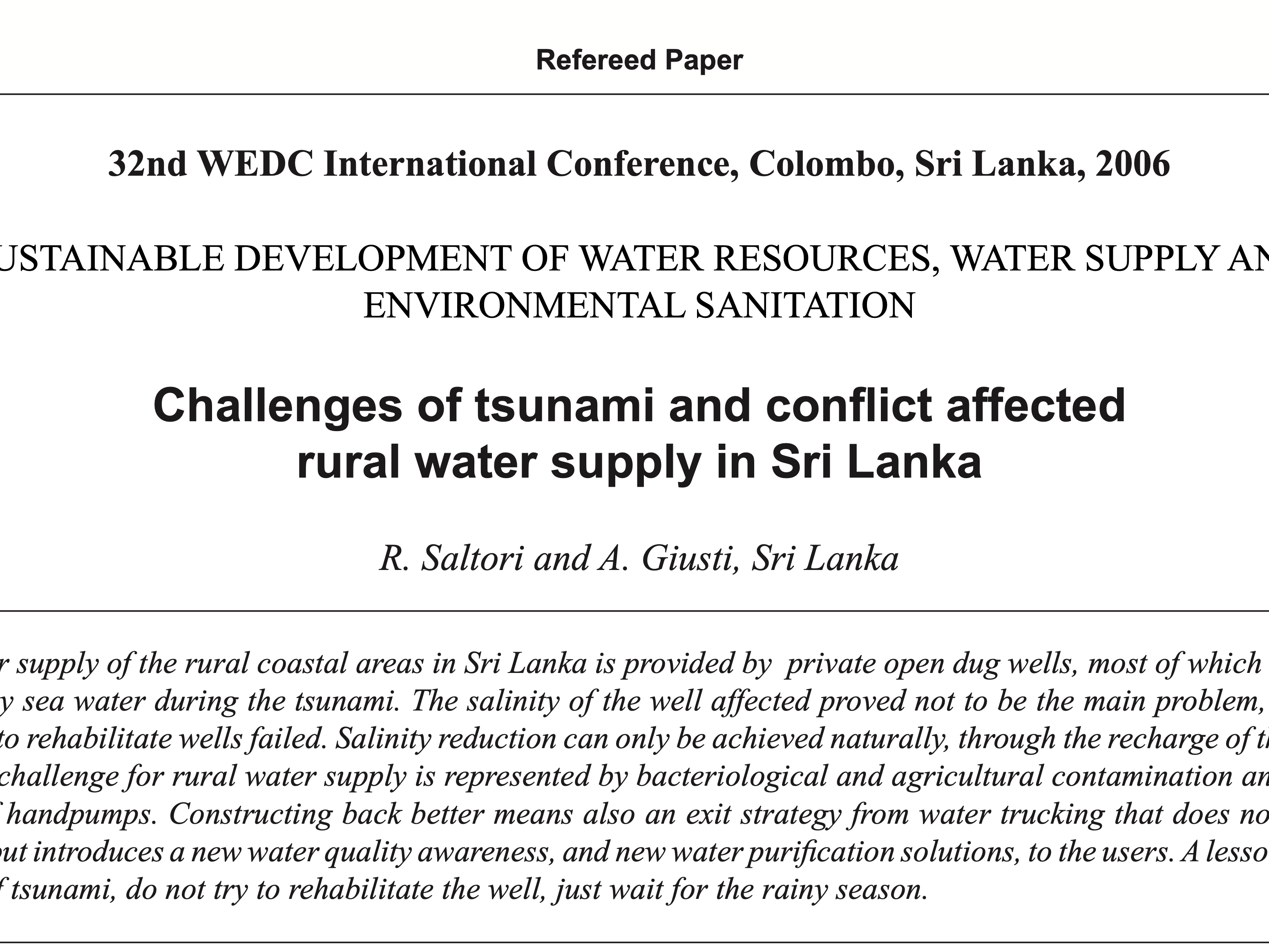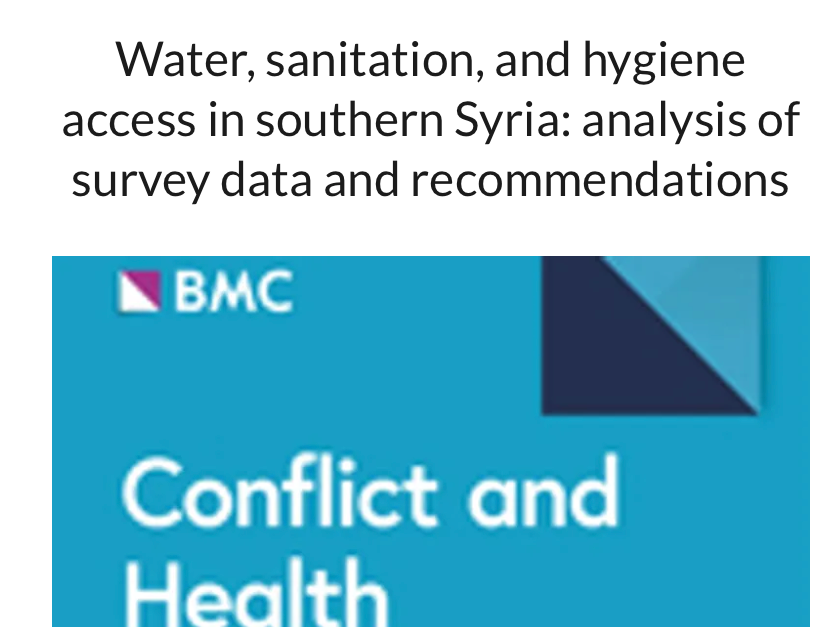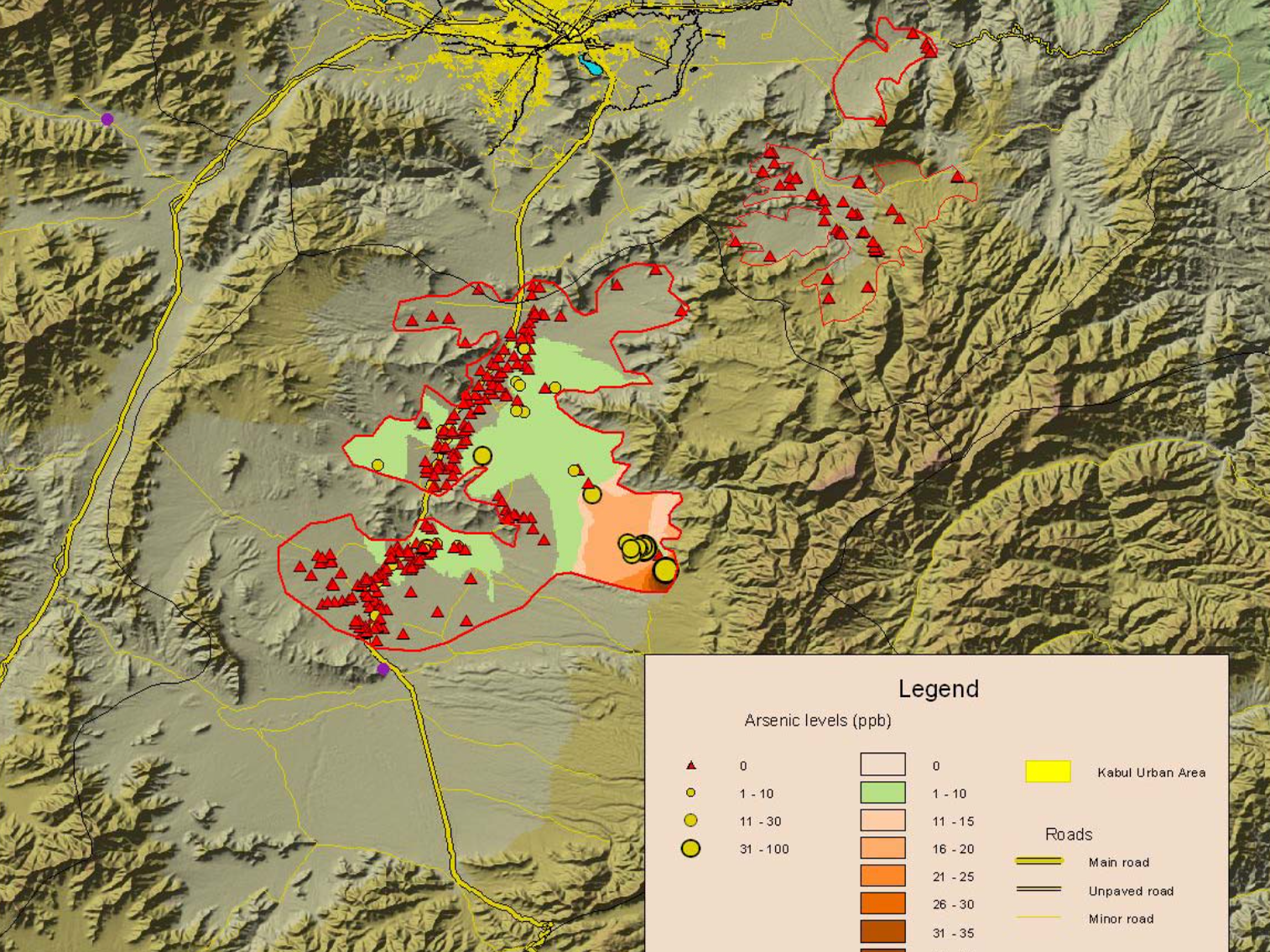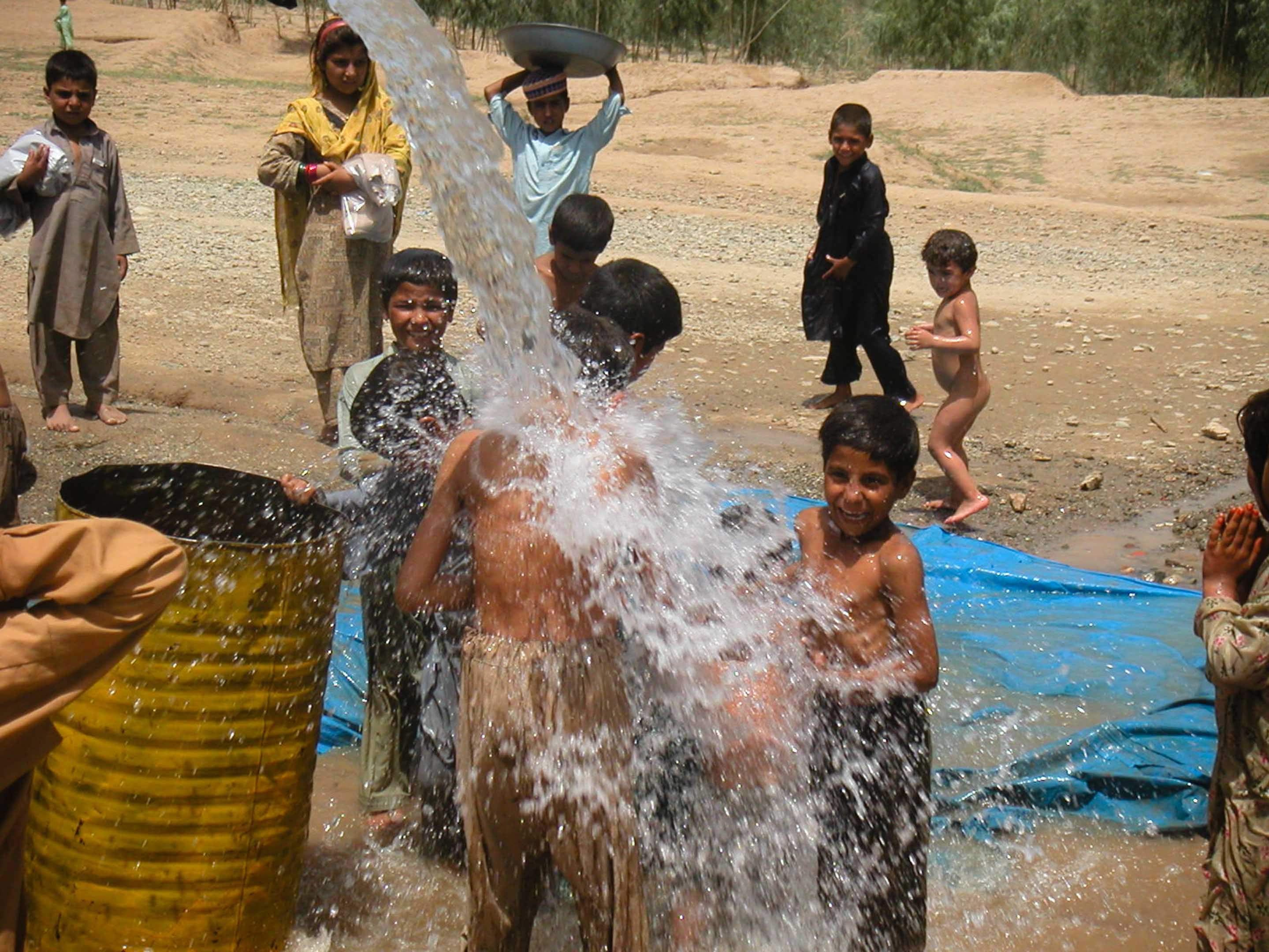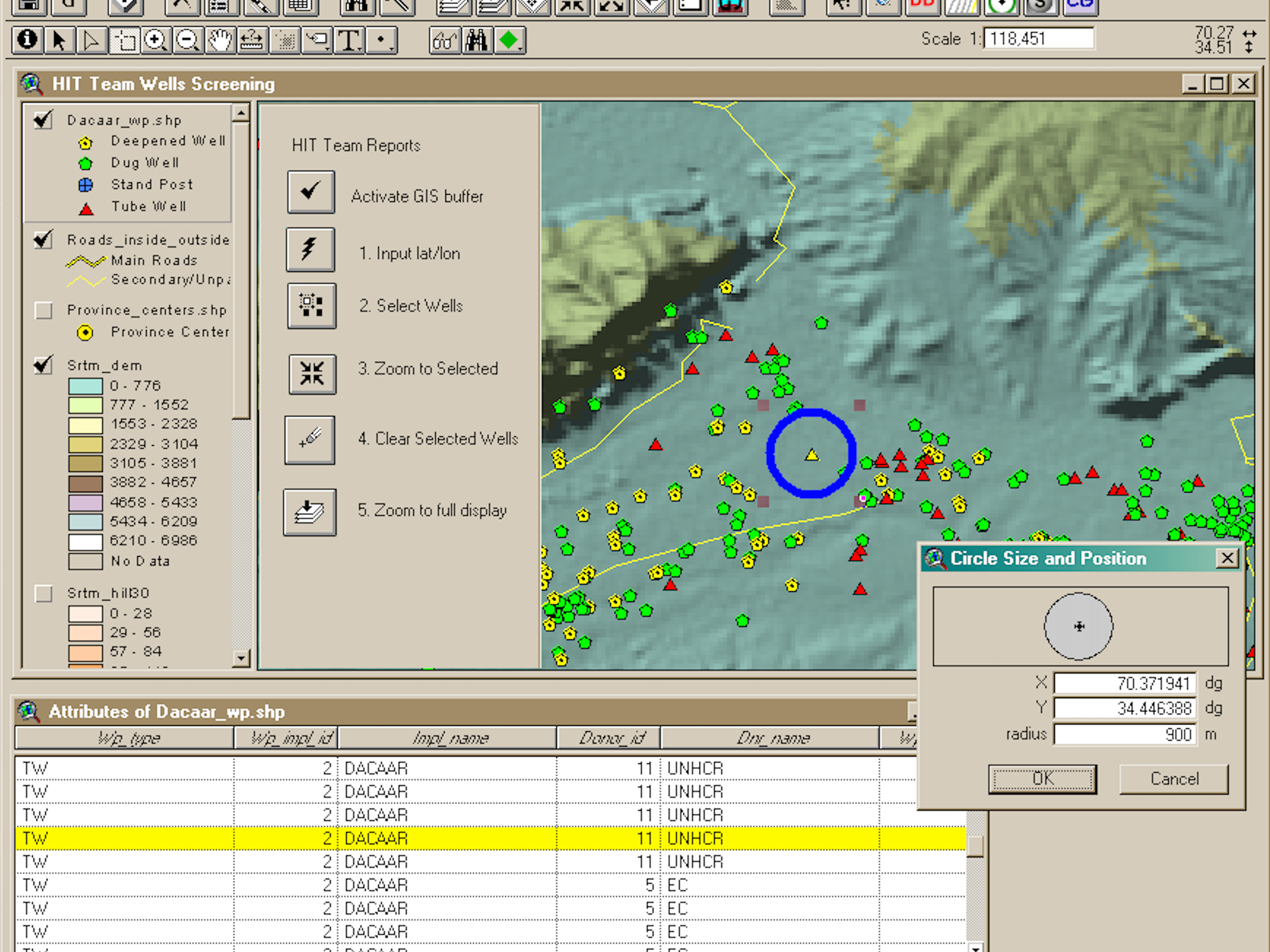Effectiveness of risk management emergency response in drinking water in southern Syria
Sikder, Mustafa & Daraz, Umar & S. Lantagne, Daniele & Saltori, Roberto. (2018)
To provide safe drinking water and reduce the risk of disease, emergency responders in southern Syria are implementing a multi-level risk reduction strategy with the aim of ensuring free chlorine residual (FCR) in household drinking water. Responders implemented activities across the water chain (from chlorination station and well operators to water vendors to household members), including distribution of supplies for chlorination and training on chlorine use; activities varied by the responder. We evaluated the effectiveness of these interventions in a cross-sectional observation study including interviews and observations with 24 chlorination station operators and 63 well owners/managers; interviews, observations, and water quality testing with 220 water truckers; and, surveys and water quality testing with 1,006 households. Across all responders, activities successfully ensured FCR in household drinking water (61-96% of households with FCR ≥0.1mg/L compared to 21% in non-intervention households, p<0.001). Centralized interventions led to the highest FCR results. Household FCR was associated with access to piped water systems (aOR 3.5, 95% CI 1.8–6.7) and chlorine distribution (aOR 6.1, 95% CI 3.4–11.0). We recommend continuing activities, emphasizing central-level activities, and supplementing with household-level activities. These results will help to optimize current interventions and guide future response design in similar contexts.

